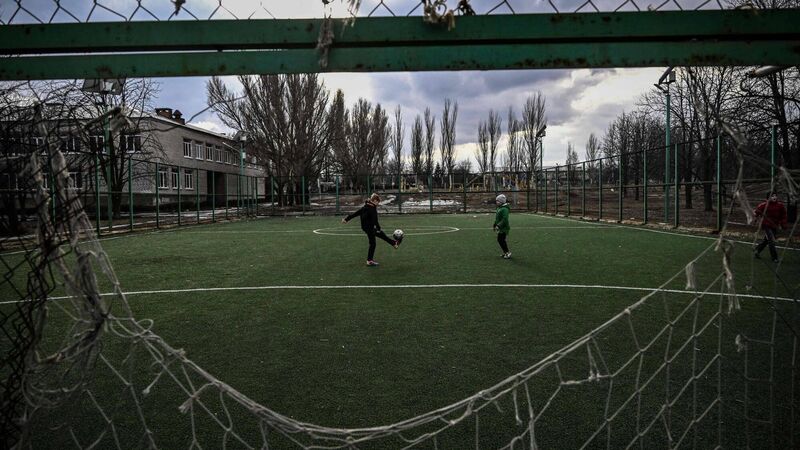'Sport is entirely different to war; it is not war remade and nor is it preparation for war'

Young boys play football in the town of Novoluhanske, eastern Ukraine on Saturday. Earlier today, Russian forces have launched a major military assault on Ukraine, with reports of missile strikes and explosions near major cities
Nobody wrote like George Orwell. And he was right about so much. But, of course, not about everything.
When it came to writing about the relationship between sport and war, he had astute observations to make, but his basic thesis was wrong.









